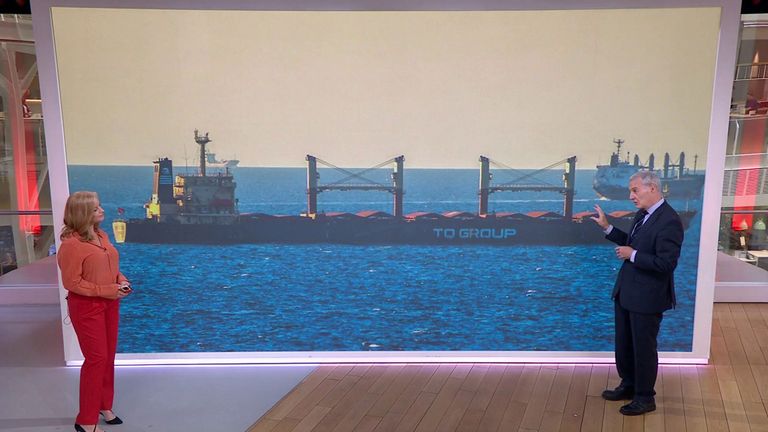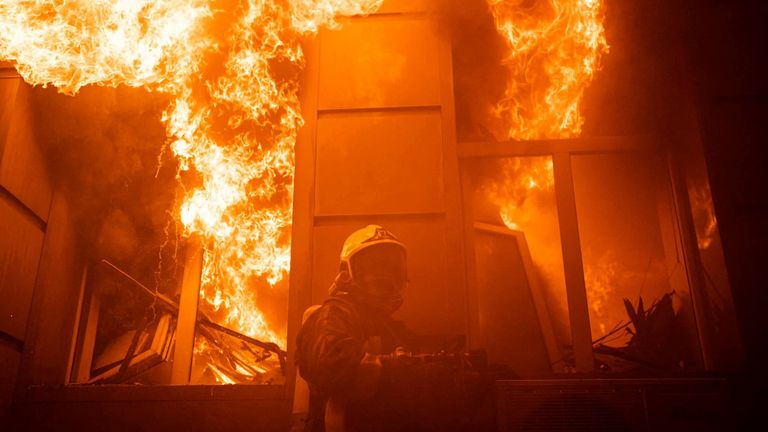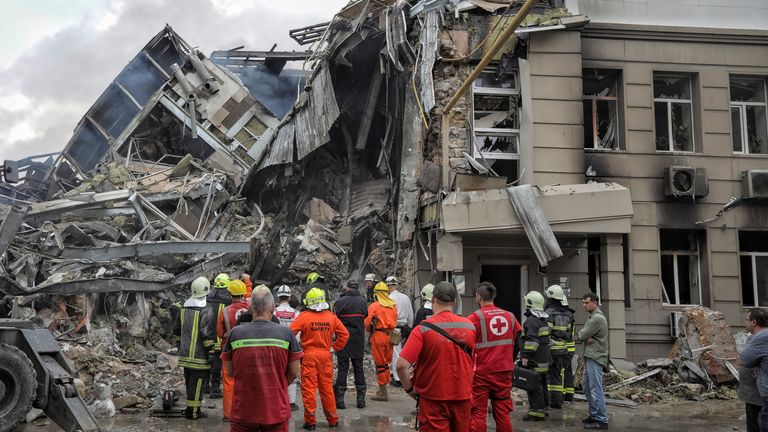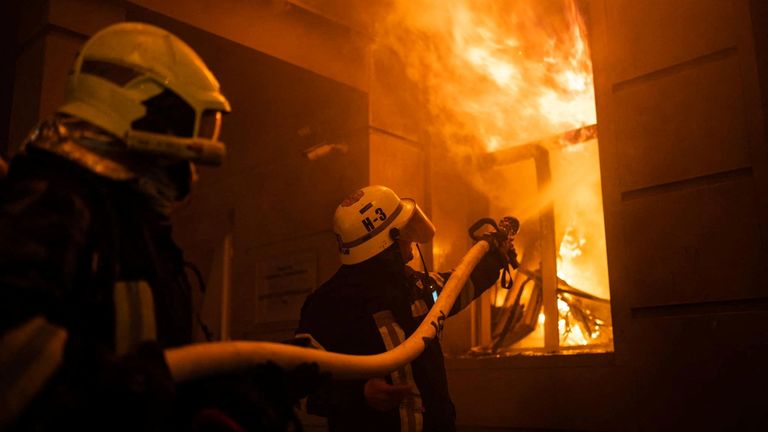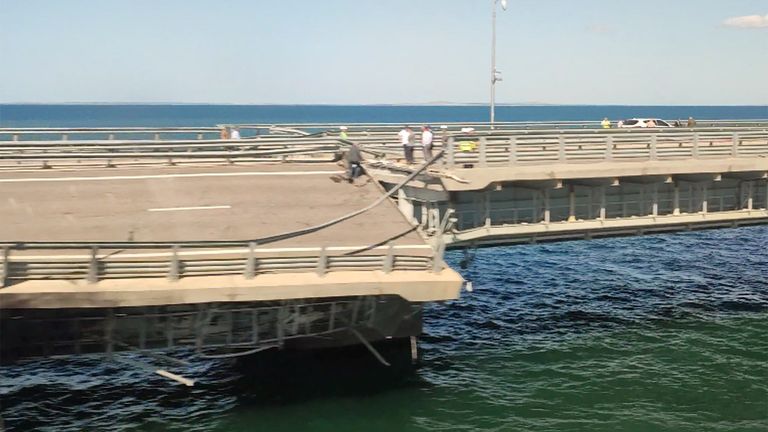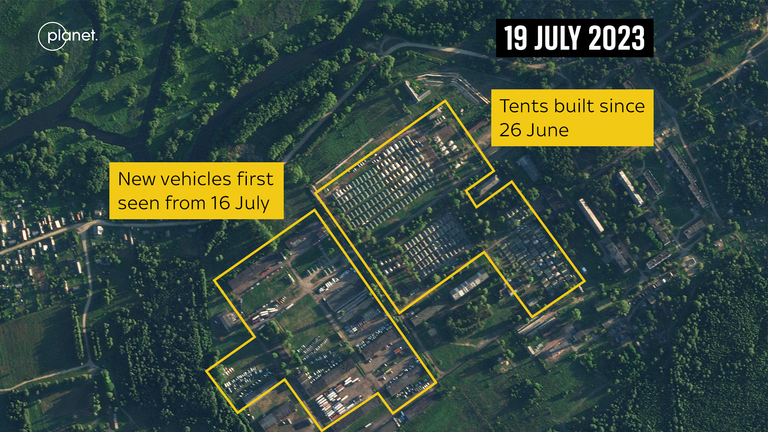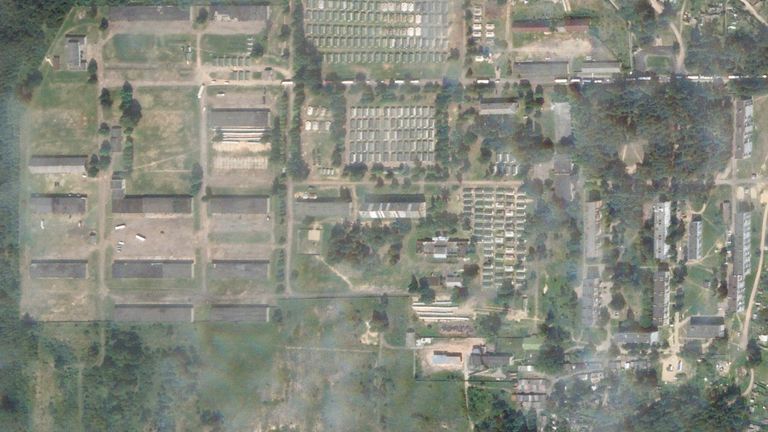Russia has restricted the movement of British diplomats within the country in a response to “hostile actions” from London, the Russian Foreign Ministry has said.
On Thursday, the ministry summoned the British interim charge d’affaires, Tom Dodd, where it announced that a “notification procedure” for the movement of employees beyond a 75-mile radius would be implemented.
In a statement it said details including the purpose of a trip, accommodation, accompanying persons and mode of transport would need to be submitted at least five working days before a trip is planned to go ahead.
The restrictions come as a consequence of what the Russian Foreign Ministry referred to as “inadmissible support [of] the terrorist actions of the Kyiv regime” and the obstruction of Russian diplomacy in Britain, although it failed to give any specific details.
Ukraine war latest: Moscow imposes restrictions on UK
As the charge d’affaires, Mr Dodd is the deputy to the British ambassador in Russia, Dame Deborah Bronnert. The restrictions do not apply to the ambassador.
Other recent developments in regard to the Ukraine war include:
• Russia’s Defence Ministry said it will deem all ships travelling to Ukraine as potentially carrying military cargo.
• At least two dead after Russian airstrikes in the Ukrainian port town of Odesa.
• Overnight incidents have been reported in Russian-occupied Crimea for the fourth day in a row.
• Belarusian forces are holding military exercises with Wagner fighters near the Polish border.
Following the end of the Black Sea grain deal – which provided some protection to ships exporting goods from Ukraine’s blockaded ports – Russia said that it was declaring southeastern and northwestern parts of the Black Sea’s international waters as unsafe for navigation.
As a result, any vessel heading to Ukraine is now deemed a potential carrier of military equipment by the foreign ministry.
In retaliation, the Ukrainian Ministry of Defence said on Thursday that Kyiv will also consider all ships travelling to Russian ports and Ukrainian ports currently occupied by Russia as potential carriers of military cargo.
Following Moscow’s exit from the grain deal, some of Ukraine’s most critical grain export infrastructure has been the target of Russian airstrikes for the third consecutive night.
At least two people, including a 21-year-old security guard, were killed in the besieged port city of Odesa, which destroyed administrative and residential buildings near the port, according to Odesa governor Oleh Kiper.
He said Ukrainian air defences destroyed all of the 12 Iranian-made Shahed drones and two Kalibr missiles that targeted the area.
The attack came after Moscow vowed “retribution” for an attack that damaged a crucial bridge between Russia and the Moscow-annexed Crimean Peninsula. Russian officials blamed that strike on Ukrainian drone boats.
Read more:
MI6 chief urges Russians appalled by war in Ukraine to spy for UK
Wagner mercenary boss ‘seen welcoming his fighters to Belarus’
Russia targets Odesa with missile and drone attacks
Reports of incidents in the popular Russian holiday destination of Crimea have been reported for the past four nights.
Following the attack on the Kerch Bridge on Monday, Russia’s Defence Ministry said its forces foiled a 28-drone Ukrainian attack on Tuesday.
The following day, an explosion at a military base in Crimea’s Kirovske district caused a huge fire and led to mass evacuations. While on Thursday, Russia claimed a teenage girl was killed in a drone strike in northwestern Crimea.
Ukraine has claimed that it wants to take back Crimea – after it was annexed in 2014 – but has not explicitly claimed responsibility for attacks on the territory.
The West has also largely been hesitant to provide any support for Ukraine’s mission to take back Crimea, and has urged against Western weapons being used on Russian territory.
Meanwhile, Russia has increasingly flexed its influence and control over Belarus.
Ties between the two countries deepened after Russia helped to curb huge anti-government demonstrations against Belarusian President Alexander Lukashenko in 2020.
Belarus has since remained in support of Russia’s war on Ukraine and now, fighters from the Wagner group have been seen practicing military exercises at a base near the Polish border.
New satellite imagery revealed that about 300 vehicles have arrived over three days at the base in Tsel, near Osipovichi in Belarus.
This comes after troop tents were first pitched at the base on 26 June, two days after an agreement was made to end Wagner’s attempted coup in Russia. Part of this agreement was for Wagner troops to move to Belarus.

